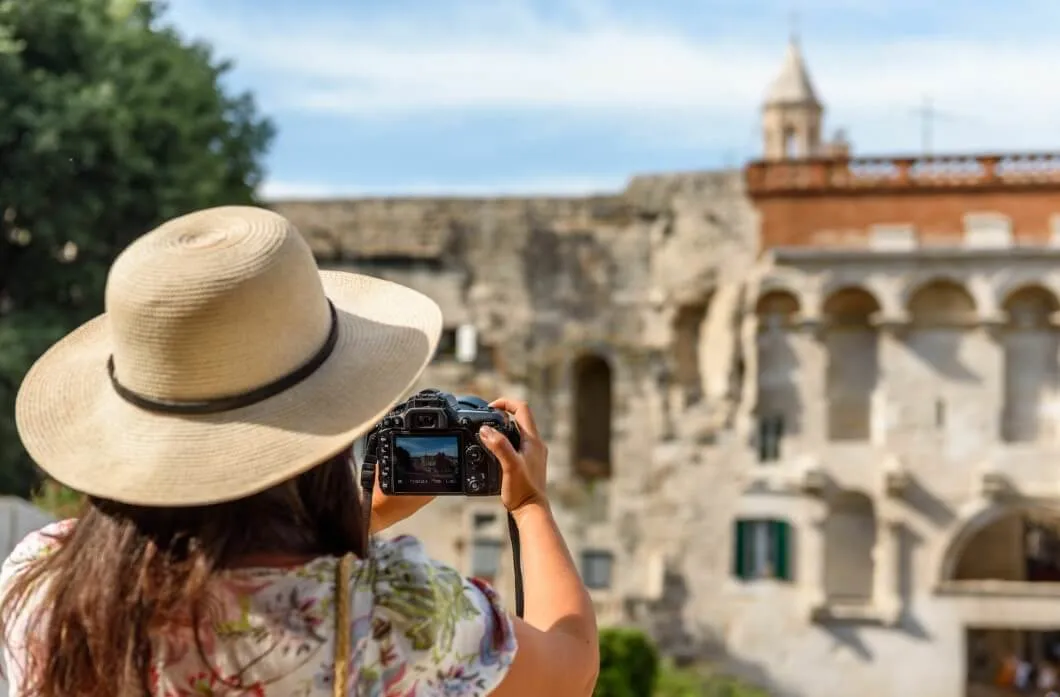
Croatia is a popular holiday destination for beautiful beaches and charming old towns. However, locals are concerned about the potential threat of a fate similar to Mallorca's. With 6,000 kilometers of coastline and good accessibility, the Istrian region is particularly attractive for investment and as a sun and beach paradise. While Croatia's tourism sector generates substantial revenue, it threatens local's environment, culture, and lives.
Corona as a boom factor
Croatia is a favorite among tourists for its affordable coastal vacations. Its popularity grew even more when the country became part of the EU. In 2013, Istria had only 30,000 guest beds before joining the EU, but the number has increased tenfold in the last decade. Additionally, even during the pandemic, Istria's appeal remained strong as air travel declined and visitors sought nearby destinations quickly by car. This was particularly from Germany, the Czech Republic, and Austria.
Infrastructure collapses
The booming business development in the country has led to overcrowding, a scarcity of water, and a stinky sewer system. Foreign investors are buying up entire cities, and apartment buildings are replacing historic cityscapes due to low taxation on private rentals. Locals are not benefiting much from the money earned.
Croatia's tourism industry thrives, causing private real estate purchases. Foreign investors doubled property purchases in 2020-2021, and the market grew by 9.4% in 2022. Brokers are selling luxury properties, leading to predictions of Croatia becoming the new Cote d'Azur.
Concerns of the locals are growing
Because of the lack of affordable housing in the area, there is a shortage of personnel in all service sectors, causing local workers to migrate to other locations for better wages. This has resulted in an increasing concern among locals about their homeland, with even the Ministry of Tourism in Istria becoming alarmed.
Strict nature conservation with loopholes
What is the situation with untouched coastlines? They are under strict protection under specific conditions. In essence, a 1000-meter area from the sea is prohibited from construction unless there is a pre-approved plan for a hotel or settlement. However, this regulation has a loophole that experts have pointed out.
Experts are concerned about the impact of tourism on Istria's untouched coasts. Coastal protection takes a backseat to promoting tourism, like constructing a 40km seaside promenade in Savudrija. Five kilometers have already been concreted over, compromising the unspoiled coastline. Luxury hotel tourists prefer not to navigate nature for long periods, so conservation efforts are compromised.
Tourist destinations are paradoxical: everyone seeks authenticity, yet their pursuit often results in its destruction permanently.

Reforms are urgently needed – also for tourism development
The Croatian government has allowed construction despite environmentalist's protests. Tourism development has led to many holiday settlements, but the government recently acted. Croatia has an estimated 50,000 illegal buildings, but only one inspector is responsible for the whole of Istria. This has brought to light double standards as luxury tourism is often tolerated, as corruption is still an issue in the country.
Rethinking – so Croatia retains its identity
Croatia is increasingly being called to reconsider its tourism industry. One possible solution is to limit tourism. However, the country faces a dilemma. On the one hand, it generates significant income from tourism. On the other hand, it struggles to cope with the sheer volume of visitors.
Environmentalists and locals advocate for a shift in political and societal attitudes to prevent the country from losing its charm and identity. It is essential to act before it is too late.










